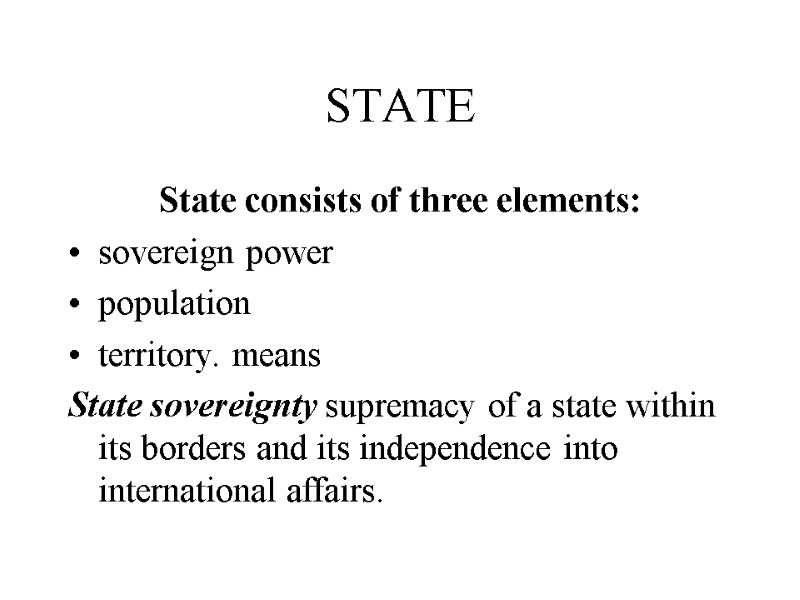 STATE State consists of three elements: sovereign power population territory. means State sovereignty supremacy of a state within its borders and its independence into international affairs.
STATE State consists of three elements: sovereign power population territory. means State sovereignty supremacy of a state within its borders and its independence into international affairs.
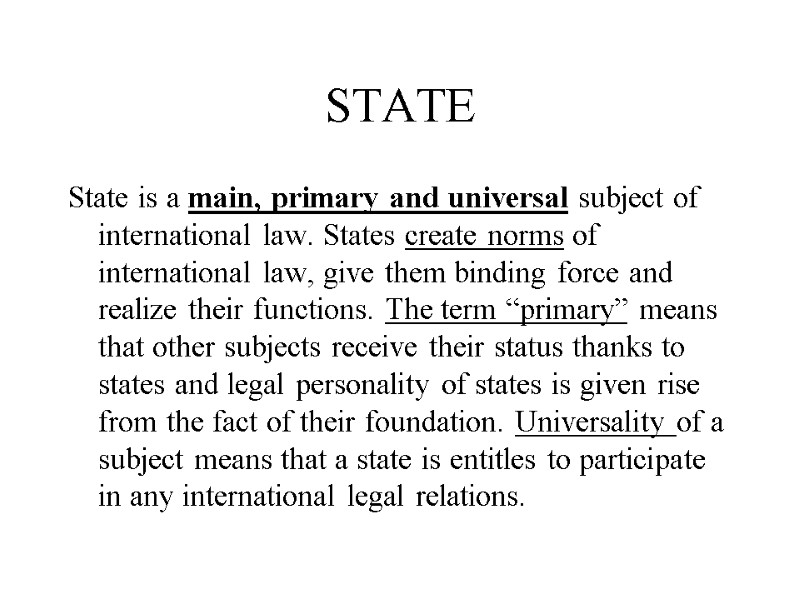 STATE State is a main, primary and universal subject of international law. States create norms of international law, give them binding force and realize their functions. The term “primary” means that other subjects receive their status thanks to states and legal personality of states is given rise from the fact of their foundation. Universality of a subject means that a state is entitles to participate in any international legal relations.
STATE State is a main, primary and universal subject of international law. States create norms of international law, give them binding force and realize their functions. The term “primary” means that other subjects receive their status thanks to states and legal personality of states is given rise from the fact of their foundation. Universality of a subject means that a state is entitles to participate in any international legal relations.
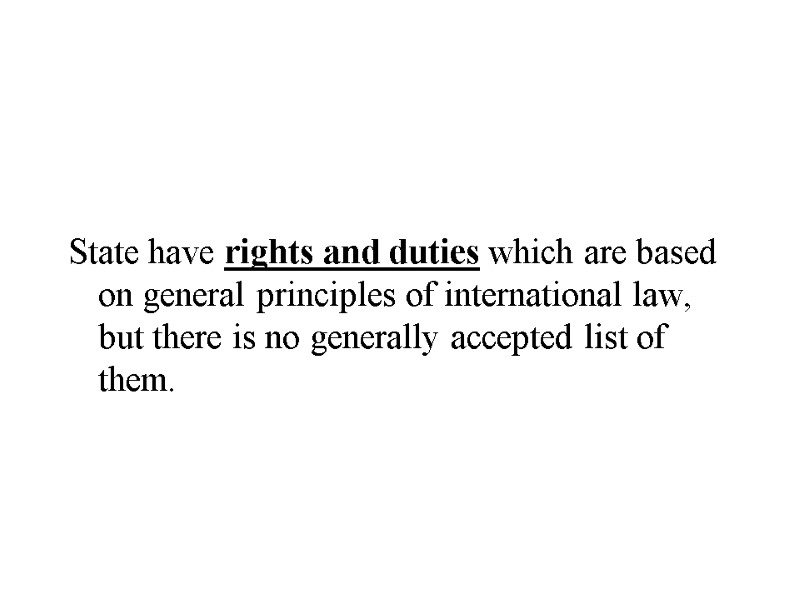 State have rights and duties which are based on general principles of international law, but there is no generally accepted list of them.
State have rights and duties which are based on general principles of international law, but there is no generally accepted list of them.
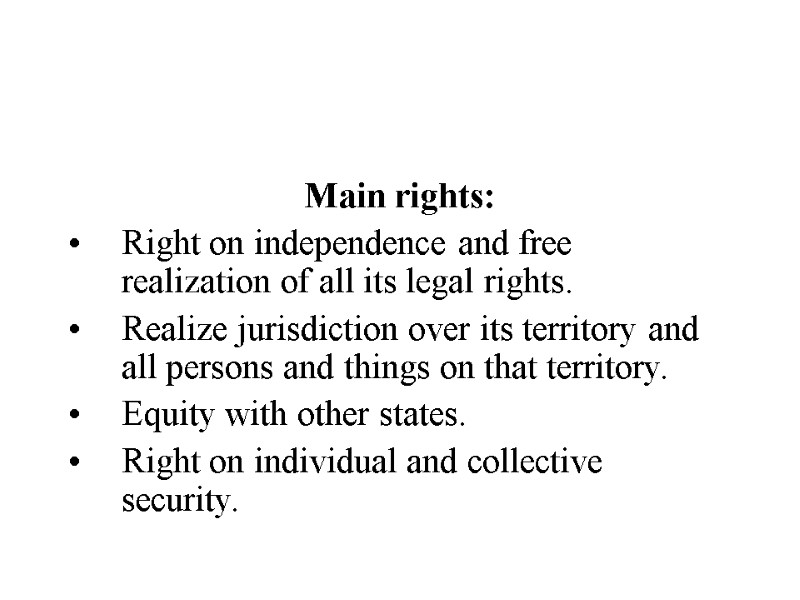 Main rights: Right on independence and free realization of all its legal rights. Realize jurisdiction over its territory and all persons and things on that territory. Equity with other states. Right on individual and collective security.
Main rights: Right on independence and free realization of all its legal rights. Realize jurisdiction over its territory and all persons and things on that territory. Equity with other states. Right on individual and collective security.
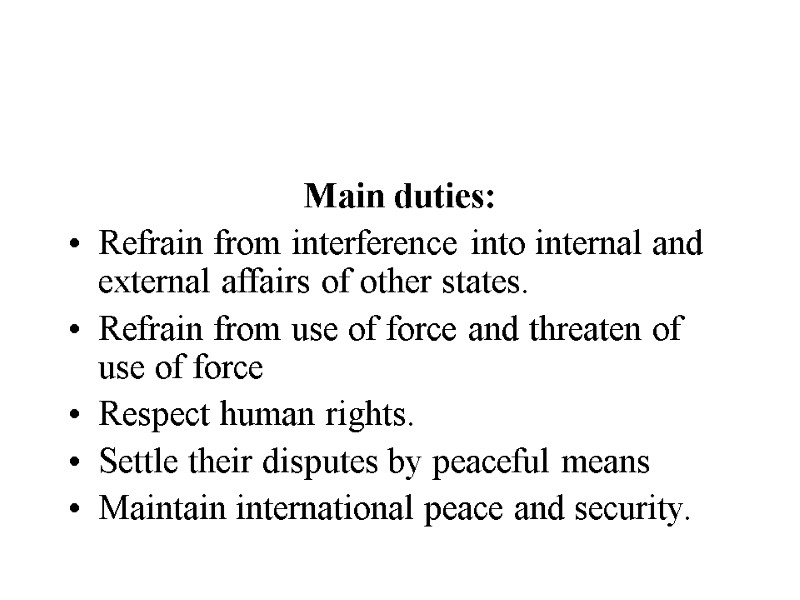 Main duties: Refrain from interference into internal and external affairs of other states. Refrain from use of force and threaten of use of force Respect human rights. Settle their disputes by peaceful means Maintain international peace and security.
Main duties: Refrain from interference into internal and external affairs of other states. Refrain from use of force and threaten of use of force Respect human rights. Settle their disputes by peaceful means Maintain international peace and security.
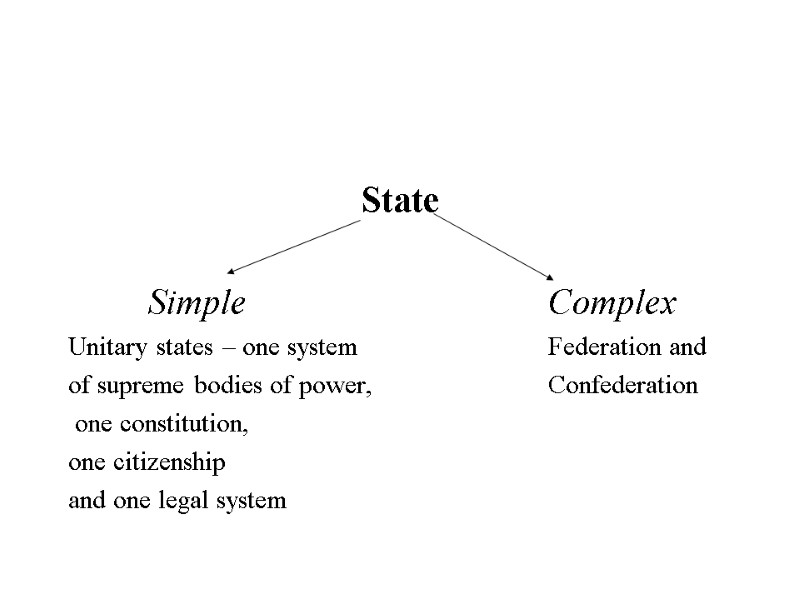 State Simple Complex Unitary states – one system Federation and of supreme bodies of power, Confederation one constitution, one citizenship and one legal system
State Simple Complex Unitary states – one system Federation and of supreme bodies of power, Confederation one constitution, one citizenship and one legal system
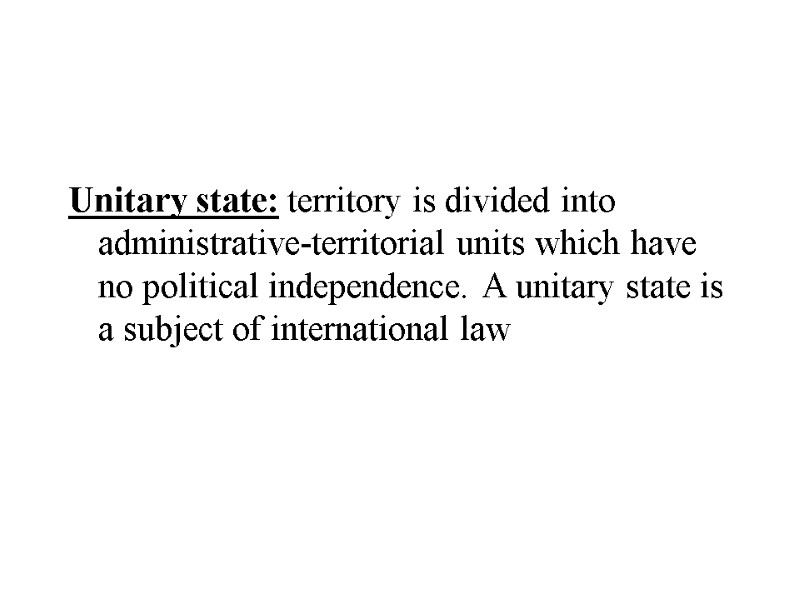 Unitary state: territory is divided into administrative-territorial units which have no political independence. A unitary state is a subject of international law
Unitary state: territory is divided into administrative-territorial units which have no political independence. A unitary state is a subject of international law
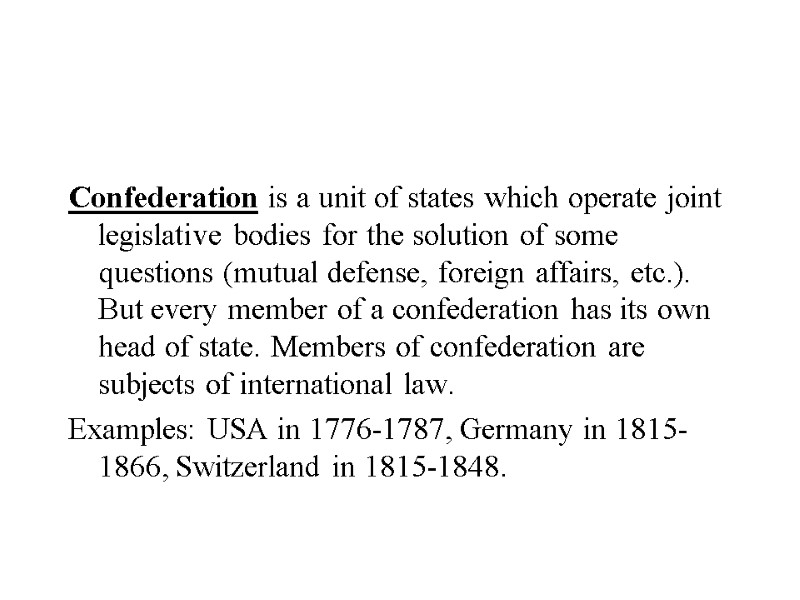 Confederation is a unit of states which operate joint legislative bodies for the solution of some questions (mutual defense, foreign affairs, etc.). But every member of a confederation has its own head of state. Members of confederation are subjects of international law. Examples: USA in 1776-1787, Germany in 1815-1866, Switzerland in 1815-1848.
Confederation is a unit of states which operate joint legislative bodies for the solution of some questions (mutual defense, foreign affairs, etc.). But every member of a confederation has its own head of state. Members of confederation are subjects of international law. Examples: USA in 1776-1787, Germany in 1815-1866, Switzerland in 1815-1848.
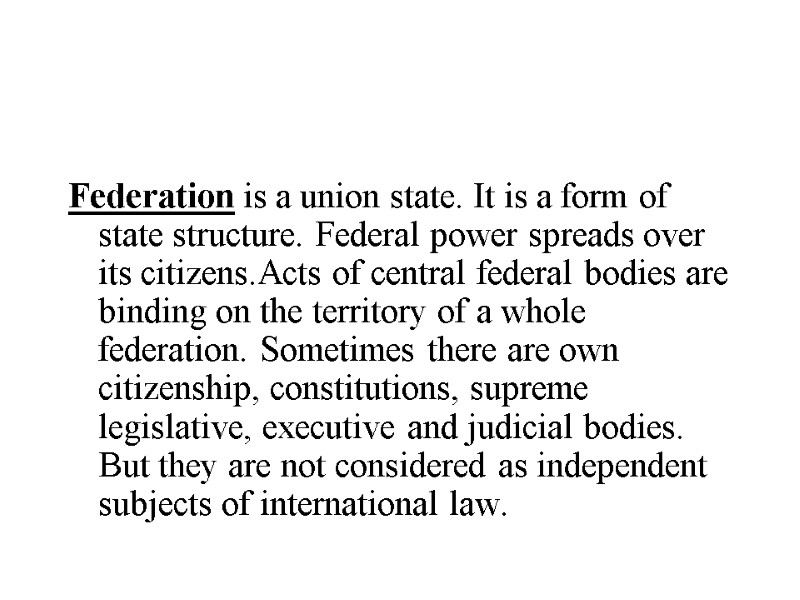 Federation is a union state. It is a form of state structure. Federal power spreads over its citizens.Acts of central federal bodies are binding on the territory of a whole federation. Sometimes there are own citizenship, constitutions, supreme legislative, executive and judicial bodies. But they are not considered as independent subjects of international law.
Federation is a union state. It is a form of state structure. Federal power spreads over its citizens.Acts of central federal bodies are binding on the territory of a whole federation. Sometimes there are own citizenship, constitutions, supreme legislative, executive and judicial bodies. But they are not considered as independent subjects of international law.

















